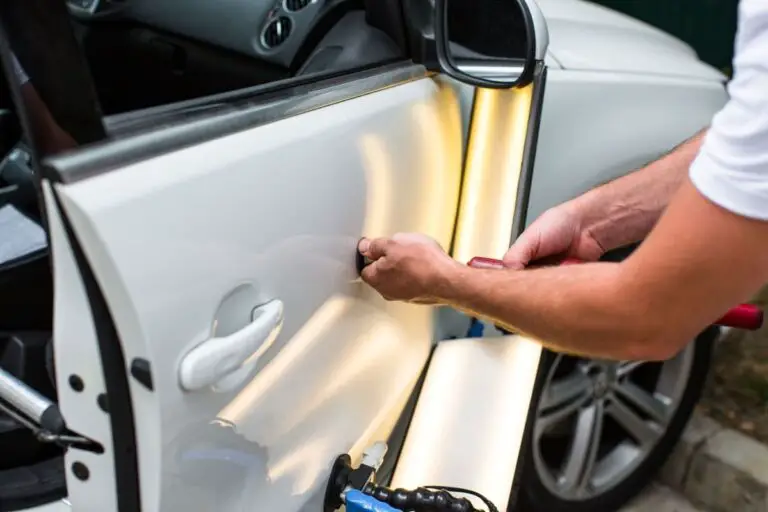Is It Weird to Name Your Car? The Surprising Truth

Have you ever felt tempted to name your car? You’re not alone. Surveys show over half of all car owners admit to naming their vehicles. But where did this quirky habit come from, and what’s the psychology behind it?
Is it weird to name your car? While not everyone feels compelled to name their set of wheels, it’s generally not considered odd behavior. Rather, it’s a nostalgic tradition rooted in history and a way for many drivers to form a deeper connection with their automotive companion.
In this lighthearted blog post, we’ll dive into:
- The history of naming cars and when it became popular
- Why so many auto enthusiasts name their cars
- The psychology behind naming inanimate objects like cars
- Common types of car names people choose
- Whether naming your car is actually weird or not
- Tips for choosing a name for your car
So let’s pop the hood and take a look at this curious car owner habit!
Table of Contents
A Look at the History of Naming Cars
Humans have been naming modes of transportation for centuries. Sailors named their ships and steam locomotives were often christened with names in the 1800s.
So where did the tradition of naming one’s personal automobile come from?
In many ways, cars took the place of horses as a more modern “horseless carriage” when they became widely available in the early 20th century. Henry Ford’s Model T, first mass produced in 1908, was an affordable car that made the automobile accessible to the average American.
As cars shifted from luxury possessions only for the wealthy to common items the average person could own, drivers started to form closer emotional bonds with their vehicles. By the 1920s, it had become a popular trend to name your car.
This quirky habit hit its peak following WWII in the 1950s and 1960s. Post-war economic prosperity meant more Americans could afford cars, leading to more creativity and personalization through naming cars. Brand new models with bold styling and big personalities seemed to inspire quirky names.
Having endured the lean years of the Great Depression and rationing during WWII, car owners were ready to have fun personalizing their vehicles during prosperous times. Naming cars was part of that wave.
So while naming cars feels like an old-timey tradition, it really only gained widespread popularity about a century ago. And it lives on today thanks to old car enthusiasts and devoted owners who form emotional connections with their sweet rides.
What Prompts Car Owners to Name Their Vehicles?
What is it that makes so many auto enthusiasts view their cars as more than just inanimate objects deserving of a name?
Anthropomorphizing the Car’s Personality
When you name something, you begin to humanize it and think of it as having a personality. Your car seems like less of an “it” and more of a “he” or “she” when it has a proper name rather than just a make and model.
You start to think of your car as having certain character traits or quirks that remind you of someone you know. Naming it only strengthens your mental image of what the car’s personality is like.
Forming an Emotional Bond
Naming a car is a sign you have a strong emotional bond with your vehicle. If your car is just a generic appliance you commute in, you likely won’t bother naming it.
But for those who restore old cars, buy their dream car, or even keep a reliable old clunker forever, naming the car is a way to deepen the connection and treat it like a member of the family.
Personalizing the Car
Giving your car a unique name is also a way to personalize it and make it feel special compared to all the anonymous other cars on the road. With so many similar looking vehicles of the same make and model, a name can help your car stand out.
Being Creative and Quirky
Sometimes naming your car is just a way to have some harmless fun and express your quirky personality. Coming up with funny, ironic, or clever names for your car can simply be an outlet for creativity.
So in many ways, naming your car is a symbol of the deeper relationship between owner and automobile. Let’s look a little closer at the psychology behind this quirk.
The Psychology Behind Naming Inanimate Objects Like Cars
There are several psychological motivators that cause someone to name their car or other possession:
Projecting Personality on Objects
Humans have a common tendency to project human traits, emotions, and personalities onto inanimate objects. This phenomenon is called anthropomorphism.
We might describe a storm as angry, or think of a home as warm and comforting. Applying human characteristics to non-human things helps us relate to and understand the world around us.
So it comes naturally to assign human-like personalities to our cars as well. That personality then starts to influence how we feel about the car.
Forming Emotional Bonds Through Naming
By naming something, we feel more emotionally attached to it. This is because naming something requires spending time and energy thinking about its attributes and choosing the “right” name.
The extra thought and emotional energy you associate with naming an object strengthens the bond you feel with it. This is likely a subconscious effect for most car owners when naming their vehicle.
Nostalgia Connected to Past Cars
Many people end up naming cars that remind them of childhood family vehicles or cars they learned to drive on. Feeling nostalgic about those former cars gets transferred to the new one, especially when choosing a similar make and model.
Naming it can help connect the nostalgic feelings we associate with past cars to the new one. So the name itself carries emotional meaning and memories.
Fun of Personalization
Sometimes naming a possession is just a way to have fun personalizing it. The act of naming itself is more about expressing creativity, irony, or humor than forming a serious bond.
For those who don’t get too attached to their cars, the enjoyment is in making the car feel more lightheartedly “theirs” through a silly or punny name.
So in many ways, naming cars is about the emotional experience of car ownership. It’s less practicality and more nostalgia and personalization. Now let’s look at the most common name types that capture those feelings.
The Many Creative Types of Car Names People Choose
When you start paying attention, you’ll notice cars on the road with all sorts of quirky names. Here are some of the most popular approaches to naming cars:
1. Human Names
Giving cars common human names remains one of the most popular options. Male and female names are both common, from Betsy and Lucy to Frank and Jake.
Human names make it easy to start imagining your car has a distinct personality like a person. Caroline might be a free-spirited hippie car while Walter could be a dependable old station wagon.
Female names may be slightly more common since cars are often referred to with feminine pronouns like “she” and “her” in English. But plenty of masculine car names exist too.
2. Descriptors
Another naming convention is choosing descriptive terms related to the car’s attributes. This could be physical descriptors like Color, age-related names like Old Bess or Newbie, or personality traits like Wild One or Serene.
Other options are naming cars after animals based on qualities you associate with that animal, like Stallion, Fox, or Eagle. Anything that describes the essence of the car’s personality works.
3. Pop Culture References
Lots of car owners get creative by naming their cars after characters or elements from movies, TV shows, books, or other pop culture properties.
A DeLorean named Doc (after Doc Brown in Back to the Future) shows off the owner’s taste in entertainment through their car name. Other options might be Bumblebee, Scooby, or even Hogwarts.
4. Brand Names
People sometimes name their cars after brands they love, especially for classic cars associated with iconic brands. A Ford Mustang owner might choose Steve McQueen or a Chevy owner could go with Chevy Chase as fun names.
The only limit is your imagination when getting creative with pop culture, descriptor, or brand-derived car names. Just pick something that fits the essence of your car’s look or personality.
Now that we’ve covered the history of naming cars, the psychology behind it, and different name types, let’s talk about…
Is It Actually Weird to Name Your Car?
Given that over 50% of car owners admit to naming their cars, it’s clearly more common than you may have realized.
But just because something is commonplace doesn’t mean it still can’t seem a bit odd or outside the norm. So is giving your car a name truly weird behavior?
The short answer is no, not really. Here are a few reasons why naming cars is more widely accepted than you might assume:
- It’s a Car Enthusiast Tradition – For classic car owners and auto aficionados, naming cars is just part of the culture. These subgroups keep old traditions alive.
- Harmless Quirk of Personalization – Expressing harmless quirks like naming inanimate objects is generally socially acceptable and seen as cute personalization.
- gendered Car Tendencies – Referring to cars with female pronouns like “she” subtly encourages assigning gendered names.
- nostalgia Factor – Naming reminds people of past generations who commonly named cars, boats, pets, making it feel nostalgic rather than odd.
While younger generations may name their cars less frequently today, society still views this practice as a harmless nostalgic quirk rather than a weird behavior. You definitely don’t need to keep your car name a secret!
But if you still feel unsure about embracing this car enthusiast tradition, here are some tips on choosing a name that feels right.
Tips for Picking the Perfect Name for Your Car
Not everyone wants to jump right into naming their car. Here are some suggestions if you want to try out naming your vehicle:
- Wait for Inspiration – Don’t force it. The perfect name might come to you spontaneously after owning your car for awhile.
- Reflect Your Personality – Choose a name related to your own interests or that matches your car’s vibe.
- Consider Meaningful Names – Use names connected to family history or positive memories.
- Have Fun with It – Don’t take naming too seriously. Weird is good if it makes you smile.
- Test it Out – Give your car a “test name” for a few weeks to make sure it fits the car’s personality before making it official.
The most important rule is that there are no real naming rules. Let your creativity guide you rather than overthinking if a name is weird or not.
Whether you pick a tough muscle car name like Bruiser, a cute descriptor like Baby Blue, or a pop culture classic like Ecto-One, embracing the tradition of naming your car can add extra joy to being a car enthusiast. It’s absolutely acceptable even if not everyone participates.
Conclusion
While naming your car may seem like an old-fashioned tradition, this quirky habit endures because it allows owners to form a deeper bond with their vehicle.
Beyond nostalgia, naming cars reflects the emotional connection we feel towards items that represent freedom, adulthood, memories, and identity. For all these reasons, the practice will likely continue for generations to come.
So if you’ve caught yourself tempted to name your four-wheeled friend, give in to the urge! It’s not considered weird behavior, but rather a fun way to personalize and forge a closer human-car connection. Just let your creative instincts guide you to the perfect descriptive, powerful, silly, or meaningful moniker.
Your car’s name might not end up on the registration, but it will hold special meaning for you. Car names capture the joy of driving and turning your vehicle into a beloved part of your life story.







